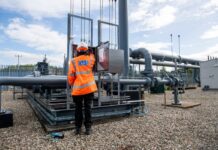ENTREPRENEURS will find out in December if they have been successful in their bids for shares of a £2m cash pot set up to push forward innovation in bioenergy.
The Government believes sustainably sourced bioenergy could contribute around 8-11% to the UK’s total primary energy demand by 2020. However, more investment is needed in research, development and demonstration projects to spur innovation and improve efficiency, from the methods used to harvest plants for energy production to the systems used to generate power from those sources.
The £2m scheme is aimed specifically at encouraging innovation in bioenergy production on wetlands that are maintained in several areas of Britain to provide a rich environment for wildlife such as wading birds, water voles and warblers.
The harvested material from those sites can be used to produce energy. The latest investment is inspire new harvesting and energy generation methods, using plants already being grown that would otherwise go to waste.
The Spending Review of October 2010 announced funding of more than £200m for low carbon technologies over the four financial years from April 2011. That funding has been allocated across the energy sector, including support to bioenergy projects.
The latest scheme is in three stages:
Phase 1
Applicants can apply for up to £50,000 to get pre-commercial design ideas off the drawing board and into more formalised project plans. There is only one window for applications, so anyone with an interest in bidding for support for bioenergy to biomass will need to submit an application at phase one.
Phase 2
Applicants awarded money under phase one will need to produce a report on their ideas for assessment by a panel of experts.
Organisations with successful designs will be invited to continue to develop their proposals at phase two and can bid for up to £1m to get trials of their project idea up and running on the ground.
Phase 3
At the end of phase two organisations will need to produce a report on the outcome of their trials.
The reports will then be judged by experts who will decide which projects to support through to a third phase. Successful organisations can apply for further money at this stage to improve their designs and carry out further trials following the initial testing.







